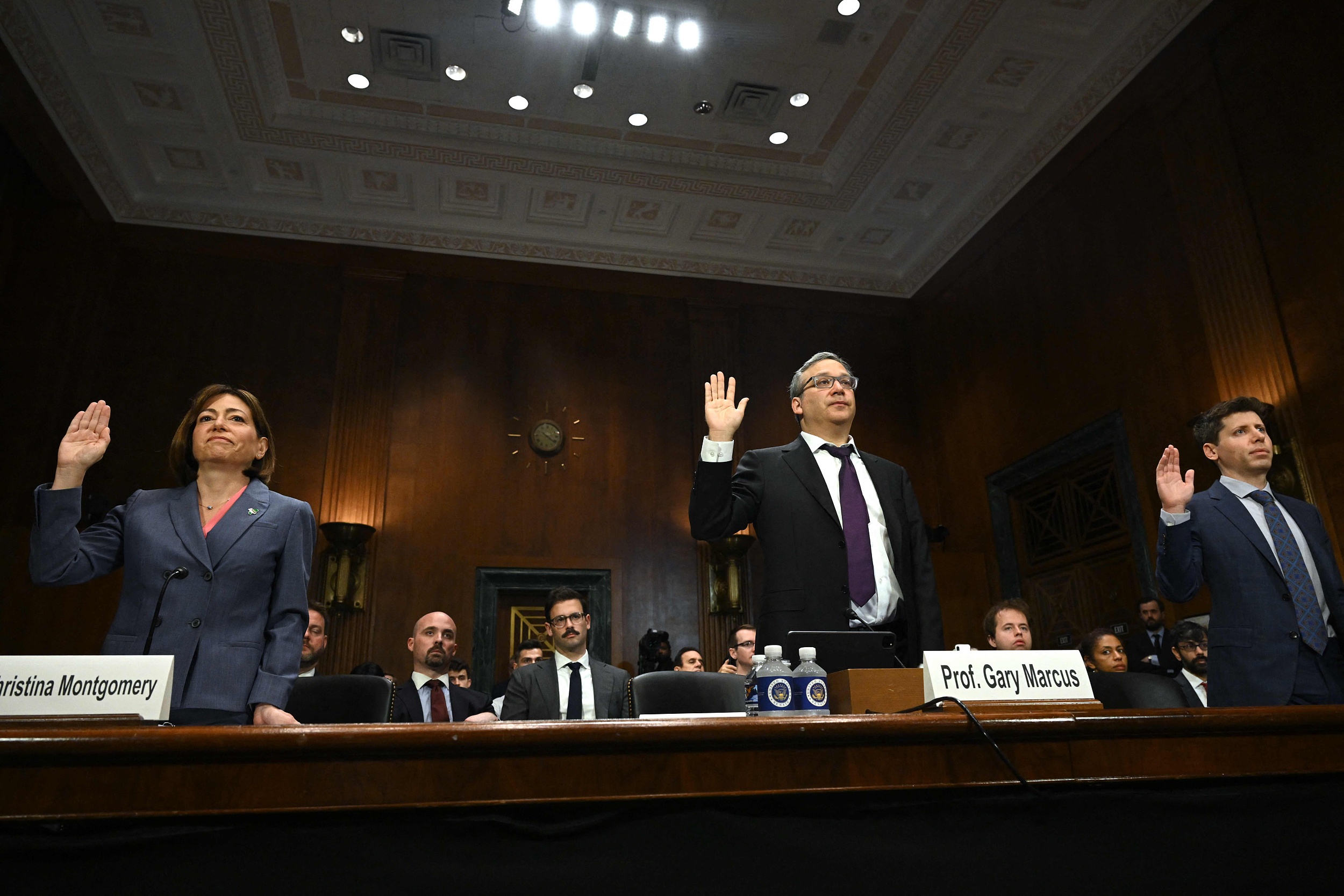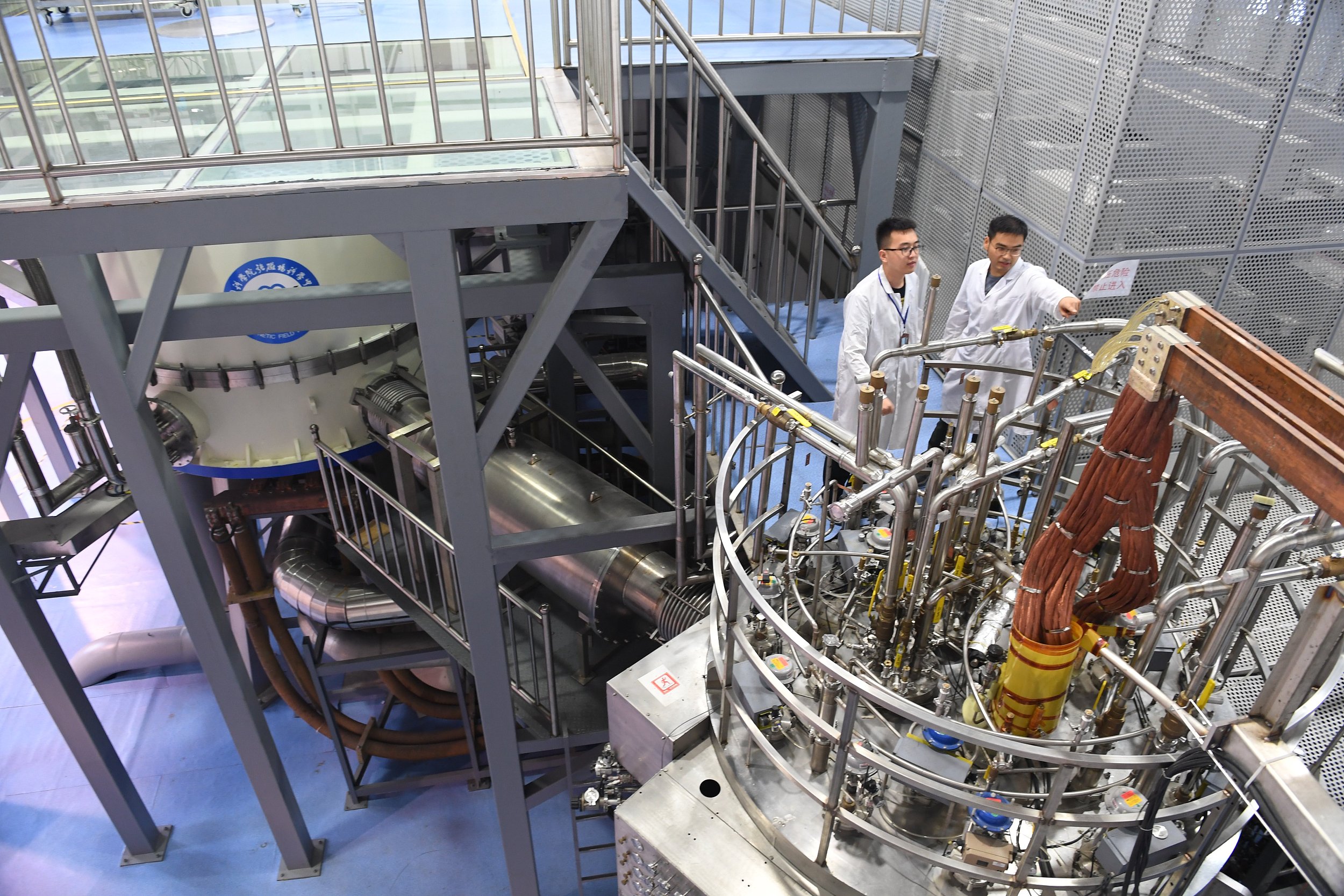AI Development Needs Global Cooperation

(L-R) Christina Montgomery, Chief Privacy and Trust Officer at IBM; Gary Marcus, Professor Emeritus at New York University, and Samuel Altman, CEO of OpenAI, are sworn in during a US Senate Judiciary Subcommittee on Privacy, Technology, and the Law oversight hearing to examine artificial intelligence, on Capitol Hill in Washington, DC, on May 16, 2023. (PHOTO: VCG)
Edited by GONG Qian
The European Parliament recently passed a draft of the Artificial Intelligence Act after months of negotiations. Once formally approved this June, it will be the first piece AI legislation.
Proposed by the European Commission in April 2021, the AI Act focuses primarily on strengthening rules around data quality, transparency, human oversight and accountability.
It also aims to address ethical questions and implementation challenges in various sectors ranging from healthcare and education to finance and energy, according to the World Economic Forum.
Indeed, with the emerging of more powerful AI systems such as ChatGPT, the public has been increasingly raising concerns over legal and ethical issues brought by AI.
Apart from the EU, other governments and international regulators have already taken actions, including enacting laws and regulations, to deal with the existing problems and potential risks posed by AI.
For example, the U.S. National Institute of Standards and Technology (NIST) released the Artificial Intelligence Risk Management Framework to manage and mitigate the risks of designing, developing, deploying, and using AI products and services in January this year. The framework offers noteworthy contributions on the pathway toward governable and accountable AI systems and it will help AI stakeholders implement best practices for managing the opportunities, responsibilities, and challenges of AI technologies, said the U.S. National Law Review.
In April, the Cyberspace Administration of China (CAC) unveiled draft measures for managing generative artificial intelligence services. Providers will be responsible for the legitimacy of data used to train generative AI products, and measures should be taken to prevent discrimination when designing algorithms and training data, said CAC. The measures are expected to come into effect sometime this year.
As case law and regulatory law are struggling to keep up with technology, policymakers, lawmakers and AI stakeholders also have realized that it is essential to strengthen international cooperation on AI regulations.
"No country can 'go it alone' in AI," said Brookings Institute, a thinktank based in Washington D.C. Enhanced cooperation is needed to tap the potential of AI solutions to address global challenges, it added.
The leaders of the ChatGPT developer OpenAI, Sam Altman, Greg Brockman and Ilya Sutskever, released an article called Governance of Superintelligence on May 22. They said superintelligence will be more powerful than other technologies, humanity has had to contend with in the past and it will require special treatment and coordination. Therefore, it is needed to establish an equivalent to the International Atomic Energy Agency.
They proposed that any effort above a certain capability threshold will need to be subject to an international authority that can inspect systems, require audits and test for compliance with safety standards.
"We are quickly approaching a brave new world by creating a novel intelligence that we can neither predict nor understand ... But one thing is clear: no one party can control the behavior of an emergent AI megasystem. Global cooperation is required. A failure to investigate the problem and put effective guardrails in place could have catastrophic consequences for all of us," said the Wall Street Journal.


